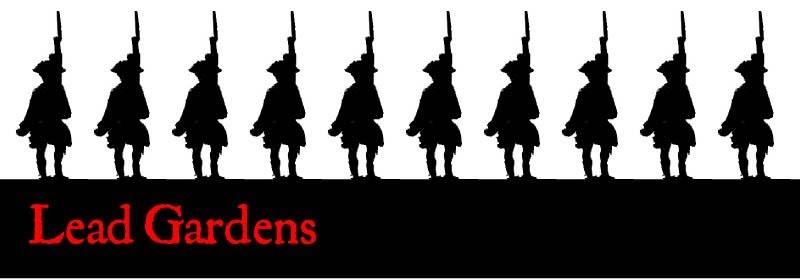Saturday, October 30, 2010
HG Wells and a Precursor to Little Wars
I have been reading some of H.G. Wells of late and came upon this interesting passage in a fictionalized "intellectual autobiography" of a character named Richard Remington entitled, "The New Machiavelli" written in 1911 which is an account that seems loosely based on his own experience in political life. In it there is a fascinating section describing his boyhood (16 year olds) friendship with a person named Britten and he describes in the following section a very interesting take on imaginary battles that would come to fruition in the "Little Wars" written in 1913 that we all know and enjoy:
"We confessed shyly to one another a common secret vice, "Phantom warfare." When we walked alone, especially in the country, we had both developed the same practice of fighting an imaginary battle about us as we walked. As we went along we were generals, and our attacks pushed along on either side, crouching and gathering behind hedges, cresting ridges, occupying copses, rushing open spaces, fighting from house to house. The hillsides about Penge were honeycombed in my imagination with the pits and trenches I had created to check a victorious invader coming out of Surrey. For him West Kensington was chiefly important as the scene of a desperate and successful last stand of insurrectionary troops (who had seized the Navy, the Bank and other advantages) against a royalist army—reinforced by Germans—advancing for reasons best known to themselves by way of Harrow and Ealing. It is a secret and solitary game, as we found when we tried to play it together. We made a success of that only once. All the way down to Margate we schemed defences and assailed and fought them as we came back against the sunset. Afterwards we recapitulated all that conflict by means of a large scale map of the Thames and little paper ironclads in plan cut out of paper.
A subsequent revival of these imaginings was brought about by Britten’s luck in getting, through a friend of his father’s, admission for us both to the spectacle of volunteer officers fighting the war game in Caxton Hall. We developed a war game of our own at Britten’s home with nearly a couple of hundred lead soldiers, some excellent spring cannons that shot hard and true at six yards, hills of books and a constantly elaborated set of rules. For some months that occupied an immense proportion of our leisure. Some of our battles lasted several days. We kept the game a profound secret from the other fellows. They would not have understood."
If this bit of the Wells story is even partially true, it would seem that the idea of wargaming with toy soldiers had occured to him at least 20 years earlier than the writing of Little Wars. I was also taken by the idea of gaming while walking... it reminded me of the late Paddy Griffith's experimental wargames staged outdoors.
Subscribe to:
Post Comments (Atom)



4 comments:
An interesting read, sir. Thank you.
-- Jeff
Wargaming might have been more widespread than we tend to think now. There is of course the well-known artivle written by Stevenson in 1989 (http://www-personal.umich.edu/~beattie/timeline/rlstext.html), and also some references to 'wargame sets' produced by toy soldier manufacturers before 1910.
Hi, great article, thanks. Who makes the soldiers in the picture!?
Spencer, those fine fellows are Britians...but unfortunately I don't own them. But Spencer Smith miniatures are now producing a nice line that reproduces those classic figures in 40mm
Post a Comment